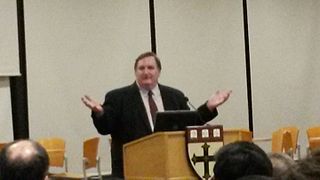
The National Science Foundation (NSF) is an independent agency of the United States federal government that supports fundamental research and education in all the non-medical fields of science and engineering. Its medical counterpart is the National Institutes of Health. With an annual budget of about $8.3 billion,the NSF funds approximately 25% of all federally supported basic research conducted by the United States' colleges and universities. In some fields,such as mathematics,computer science,economics,and the social sciences,the NSF is the major source of federal backing.

The American Association for the Advancement of Science (AAAS) is an American international non-profit organization with the stated goals of promoting cooperation among scientists,defending scientific freedom,encouraging scientific responsibility,and supporting scientific education and science outreach for the betterment of all humanity. AAAS was the first permanent organization to promote science and engineering nationally and to represent the interests of American researchers from across all scientific fields. It is the world's largest general scientific society,with over 120,000 members,and is the publisher of the well-known scientific journal Science.
The National Institute of Mental Health (NIMH) is one of 27 institutes and centers that make up the National Institutes of Health (NIH). The NIH,in turn,is an agency of the United States Department of Health and Human Services and is the primary agency of the United States government responsible for biomedical and health-related research.

The National Institute on Drug Abuse (NIDA) is a United States federal government research institute whose mission is to "advance science on the causes and consequences of drug use and addiction and to apply that knowledge to improve individual and public health."

Kelly David Brownell is a clinical psychologist and scholar of public health and public policy at Duke University whose work focuses on obesity and food policy. He is a former dean of Duke's Sanford School of Public Policy. Noted for his research dealing primarily with obesity prevention,as well as the intersection of behavior,environment,and health with public policy,Brownell advised former First Lady Michelle Obama's initiatives to address childhood obesity and has testified before Congress. He is credited with coining the term "yo-yo dieting",and was named as one of "The World's 100 Most Influential People" by Time Magazine in 2006.

George F. Koob is a Professor and former Chair of the Committee on the Neurobiology of Addictive Disorders at the Scripps Research Institute and Adjunct Professor of Psychology,Psychiatry,and Skaggs School of Pharmacy and Pharmaceutical Sciences at the University of California,San Diego. In 2014 he became the director of the National Institute on Alcohol Abuse and Alcoholism.

Nora D. Volkow is a Mexican-American psychiatrist. She is currently the director of the National Institute on Drug Abuse (NIDA),which is part of the National Institutes of Health (NIH).

Joseph Vincent Brady was an American psychologist,neuroscientist,and pioneer of behavioral pharmacology. In addition to his status as a founder of behavioral pharmacology,he made significant contributions in the areas of drug abuse and treatment,space exploration,and human research ethics.
Transformative research is a term that became increasingly common within the science policy community in the 2000s for research that shifts or breaks existing scientific paradigms. The idea has its provenance in Thomas Kuhn's notion of scientific revolutions,where one scientific paradigm is overturned for another. Classic examples are the Copernican Revolution,Albert Einstein's theories,the work of Watson and Crick,and plate tectonics theory.

Perry N. Halkitis is an American of Greek ancestry public health psychologist and applied statistician known for his research on the health of LGBT populations with an emphasis on HIV/AIDS,substance use,and mental health. Perry is Dean and Professor of Biostatistics,Health Education,and Behavioral Science at the Rutgers School of Public Health.
Lana Skirboll is the former director of the National Institutes of Health Office of Science Policy.

Matilda White Riley was an American gerontologist who began working at Rutgers University as a research specialist before becoming a professor from 1950 to 1973. Here she wrote a textbook and discovered her interest in aging. In 1973,Riley became the first woman full professor at Bowdoin College,where she worked until 1981. She spent much of her career as a sociologist specializing in aging at the National Institute on Aging,part of the National Institutes of Health. Additionally,Riley worked with the Russell Sage Foundation from 1974 to 1977 where she wrote works on the age-stratification paradigm and aging society perspective.
Gardner Edmund Lindzey was an American psychologist and a past president of the American Psychological Association (APA). After completing a doctorate at Harvard University,Lindzey served as a professor or administrator at several universities,edited a well-known textbook in social psychology and led a 1982 National Academy of Sciences (NAS) panel that recommended the legalization of marijuana.

Kenneth Dodge is the William McDougall Distinguished Professor of Public Policy and Professor of Psychology and Neuroscience at Duke University. He is also the founding and past director of the Duke University Center for Child and Family Policy and founder of Family Connects International.

Susan G. Amara is an American professor of neuroscience and is the Scientific Director of the National Institute of Mental Health. Dr. Amara is an elected member of the National Academy of Sciences and a fellow of the American Association for the Advancement of Science. She is a Past-President of the Society for Neuroscience. Dr. Amara has a B.S. in Biological Sciences from Stanford University and a Ph.D. in Physiology and Pharmacology from the University of California,San Diego.
Noelle Eckley Selin is an atmospheric chemist and Associate Professor at Massachusetts Institute of Technology in the Institute for Data,Systems and Society and the Department of Earth,Atmospheric and Planetary Sciences.

Kafui Dzirasa is an American psychiatrist and Associate Professor at Duke University. He looks to understand the relationship between neural circuit malfunction and mental illness. He was a 2019 AAAS Leshner Fellow and was elected Fellow of the National Academy of Medicine in 2021.
Hendrée E. Jones is a researcher on women's substance abuse disorders and its impact on children. She is a professor in the Department of Obstetrics and Gynecology at the University of North Carolina School of Medicine,and adjunct professor in the University of North Carolina College of Arts &Sciences Department of Psychology and Neuroscience. Jones is the executive director of the UNC Horizons Program,which is a comprehensive drug treatment program for mothers and their drug-exposed children. She is a consultant for the Substance Abuse and Mental Health Services Administration,the United Nations,and the World Health Organization.

Joni L. Rutter is an American geneticist and director of the National Center for Advancing Translational Sciences (NCATS). Rutter was previously director of the scientific programs in the All of Us initiative and served as the neuroscience and behavior division director at the National Institute on Drug Abuse. Her scientific experience includes clinical research in human genetics and environmental risk factors focusing on the fields of cancer and addiction.

Ellen Peters is an American academic and the Philip H. Knight Chair,Director of the Center for Science Communication Research,and Professor both in the School of Journalism and Communication and in Psychology at the University of Oregon. She is also an associate in the Phil and Penny Knight Campus for Accelerating Scientific Impact. Prior to moving to the University of Oregon in 2019,she spent nine years in the psychology department at The Ohio State University where she was a Distinguished Professor. She also directed the Decision Sciences Collaborative in the College of Arts and Science and was a full member of the Cancer Control Center in Ohio State's Medical Center.














